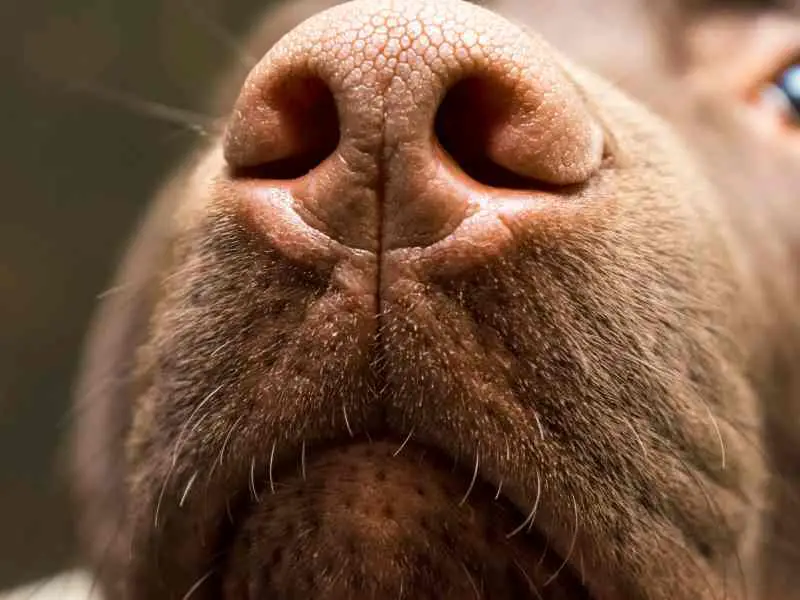Labrador Retrievers are renowned for their friendly and sociable nature, as well as their intelligence and versatility. These lovable canines have long been cherished as family pets and trusted companions. But did you know that beneath their gentle exterior lies a hidden talent for rat hunting?
Labradors, with their strong build and boundless energy, possess a set of characteristics that make them well-suited for various tasks, including rat hunting. Their innate hunting instincts, coupled with their exceptional trainability, make them a force to be reckoned with in the battle against these pesky rodents.
In this article, we will delve into the intriguing world of rat hunting and explore the unique abilities that Labrador Retrievers bring to the table. We will uncover the historical significance of rat hunting, discuss the traits that make Labradors natural-born hunters, and unveil the training methods that can transform them into formidable rat catchers. Additionally, we will share real-life stories of Labradors showcasing their rat-hunting prowess, highlight the benefits of using them for rat control, and address important considerations when embarking on this endeavor.
So, if you’ve ever wondered whether Labradors excel at rat hunting, join us on this adventure as we unravel the mysteries of their rat-catching abilities and discover the fascinating world of Labrador Retrievers as skilled hunters.
Stay tuned for the next section where we will take a step back in time to explore the captivating history of rat hunting and its significance in society.
History of Rat Hunting
Rat hunting, a practice that dates back centuries, has long been an essential activity to control the population of these pesky rodents. In the past, people employed various methods to keep rats at bay, recognizing their destructive nature and the potential health risks they posed.
Rat hunting methods in the past were diverse and often tailored to specific regions and cultures. One popular approach was the use of terriers, small and agile dogs with a natural inclination for hunting rats. These fearless canines would dive into rat-infested areas, utilizing their sharp senses and remarkable agility to catch and eliminate the vermin.
Popular rat hunting breeds were carefully selected for their specific traits and abilities. Terriers, such as the Jack Russell Terrier and the Rat Terrier, were highly regarded for their exceptional rat-catching skills. Their small size and tenacious nature made them perfect for navigating tight spaces and pursuing fast-moving rodents.
While terriers were widely recognized for their rat hunting prowess, it is interesting to note that Labrador Retrievers, often associated with their friendly and gentle nature, also played a significant role in rat control. Labradors, known for their intelligence and versatility, were employed not only as family pets and hunting companions but also as efficient rat hunters.
Labradors possess an inherent drive for hunting and retrieving, which can be traced back to their origins as working dogs in Newfoundland, Canada. These dogs were initially bred to assist fishermen in retrieving nets and hauling fish, showcasing their natural instincts for tracking and retrieving objects.
Over time, Labrador Retrievers’ hunting abilities expanded beyond their traditional roles, and they proved to excel in various fields, including rat hunting. Their keen sense of smell, combined with their agility and intelligence, made them well-suited for the task. Labradors exhibited an uncanny ability to detect the presence of rats, track their movements, and ultimately capture them. This adaptability showcased the breed’s versatility and highlighted their potential as effective rat hunters.
As the demand for rat control increased, so did the recognition of Labrador Retrievers’ rat-catching abilities. Their inclusion in the ranks of popular rat hunting breeds further solidified their position as valuable assets in the ongoing battle against these persistent pests. Labrador Retrievers demonstrated their prowess not only in rural areas but also in urban environments, where rat infestations were a common problem.
The historical significance of Labradors as rat hunters should not be overlooked. While terriers were celebrated for their rat-catching skills, Labradors quietly made their mark in the field, playing a vital role in rat eradication efforts. Their presence in rat control initiatives was a testament to their adaptability and the versatility of their skill set.
Join us in the next section as we delve into the specific traits and training methods that make Labradors such adept rat hunters.
Labrador Retrievers’ Hunting Abilities
Labrador Retrievers possess a remarkable set of hunting abilities that make them well-suited for a variety of tasks, including rat hunting. These intelligent and versatile dogs have a natural instinct for tracking and chasing prey, which has been honed over centuries of selective breeding.
Natural Instincts for Hunting
Labradors have a strong prey drive and an innate desire to pursue and capture small animals. Their ancestors were originally bred as working dogs, assisting fishermen in retrieving fish from the icy waters of Newfoundland. This background instilled in them a deep-rooted instinct to search, retrieve, and carry objects in their mouths. These natural inclinations have seamlessly translated into their rat hunting capabilities.
Traits that Make them Suitable for Rat Hunting
Labradors possess a unique combination of traits that make them particularly effective when it comes to rat hunting. Their exceptional sense of smell, for instance, allows them to detect the presence of rodents with astonishing accuracy. Their olfactory prowess enables them to perceive scents that are imperceptible to the human nose, making them excellent at tracking down elusive rats.
Furthermore, Labradors are incredibly agile and possess remarkable speed. This athleticism enables them to navigate through various terrains with ease, whether it’s darting through tall grass or maneuvering in tight spaces where rats often seek refuge. Their nimbleness and dexterity make them adept at chasing and cornering rats, ensuring that these vermin have nowhere to escape.
Another notable trait of Labradors is their intelligence and trainability. They are quick learners and eager to please, which makes them highly responsive to training. This characteristic is essential when it comes to rat hunting, as it allows handlers to teach specific commands and behaviors that are crucial for successfully apprehending rats. Training Labradors to become efficient rat hunters involves a combination of basic obedience training, scent work, and specialized commands tailored to the task at hand.
In conclusion, Labradors possess a set of hunting abilities that make them formidable rat hunters. Their natural instincts for hunting, coupled with their exceptional traits such as a keen sense of smell, agility, and trainability, make them an excellent choice for rat control. In the next section, we will delve into the training methods that can further enhance their rat hunting skills. Stay tuned!
Continue reading: Training Labrador Retrievers for Rat Hunting
Training Labrador Retrievers for Rat Hunting
Labrador Retrievers are not only known for their friendly and gentle nature, but they also possess a remarkable set of skills that make them suitable for various tasks, including rat hunting. However, training these lovable canines to become effective rat hunters requires a systematic approach and specialized techniques. In this section, we will explore the essential steps involved in training Labrador Retrievers for rat hunting.
Basic obedience training
Before delving into the intricacies of rat hunting, it is crucial to lay a solid foundation of basic obedience training for your Labrador Retriever. This ensures that your furry friend has a strong grasp of fundamental commands such as “sit,” “stay,” “come,” and “heel.” Obedience training establishes a line of communication between you and your dog, making it easier to teach more advanced skills.
Introduction to scent work
One of the key factors that contribute to the Labrador Retriever’s success in rat hunting is their exceptional sense of smell. These dogs have a highly developed olfactory system, allowing them to detect and track scents with remarkable accuracy. To harness this innate ability, it is essential to introduce your Labrador Retriever to scent work.
Scent work involves teaching your dog to identify and follow specific scents associated with rats. This can be accomplished through various training exercises, such as scent discrimination and scent tracking. By gradually introducing your Labrador Retriever to different scents and rewarding them for correctly identifying the target scent, you can enhance their olfactory skills and prepare them for the challenges of rat hunting.
Teaching commands specific to rat hunting
Once your Labrador Retriever has mastered basic obedience training and become proficient in scent work, it is time to teach them commands specific to rat hunting. These commands serve as essential tools for directing your dog’s behavior during the hunt and ensuring their safety.
Some common commands used in rat hunting include:
- “Find”: This command instructs your Labrador Retriever to actively search for rats in the designated area. It encourages them to use their sense of smell and alert you when they locate a rat.
- “Stay”: This command is crucial for keeping your dog focused and in control during the hunt. It ensures that they maintain a steady position while you assess the situation and plan your next move.
- “Leave it”: This command is invaluable when your Labrador Retriever encounters a rat. It teaches them to refrain from engaging with the rat, preventing potential harm or injury.
- “Drop it”: In the event that your dog manages to catch a rat, this command allows you to safely retrieve the rat without any harm to either party.
By consistently practicing these commands in real-life scenarios and rewarding your Labrador Retriever for their successful responses, you can refine their rat hunting skills and establish a strong partnership between you and your furry companion.
Training Labrador Retrievers for rat hunting requires patience, consistency, and a deep understanding of the breed’s instincts and capabilities. By investing time and effort into their training, you can unlock the remarkable potential of these lovable canines and witness their impressive rat-catching abilities firsthand.
Continue reading to discover real-life stories of Labrador Retrievers excelling at rat hunting and the benefits of using them for rat control.
Labrador Retrievers in Action
Labrador Retrievers are not just adorable family pets, but they also possess remarkable skills that make them excel at rat hunting. Their combination of intelligence, agility, and determination allows them to tackle the challenge of eradicating pesky rodents with great success. Let’s delve into some real-life stories of Labrador Retrievers showcasing their rat hunting prowess and explore the benefits of using them for effective rat control.
Real-life stories of Labrador Retrievers excelling at rat hunting are a testament to their innate abilities. These brave canines have proven time and again that they are more than just cuddly companions. One such story involves Max, a Labrador Retriever from a small town in rural America. Max’s owner, Mr. Johnson, was plagued by a rat infestation in his barn. Determined to find a solution, he enlisted Max’s help. With his keen sense of smell and relentless drive, Max quickly honed in on the rats’ hiding spots. He fearlessly chased them down, effectively reducing the rat population in Mr. Johnson’s barn. Max became a local hero, admired for his exceptional rat-catching abilities.
Another remarkable tale involves Bella, a Labrador Retriever living in a bustling city. Bella’s owner, Mrs. Thompson, had been struggling with rats invading her backyard and causing havoc. Frustrated by failed attempts to control the rat population, Mrs. Thompson decided to put Bella’s hunting instincts to the test. To her delight, Bella proved to be a natural rat hunter. She swiftly tracked down the elusive rodents, ensuring a rat-free environment for her grateful owner. Bella’s success story spread throughout the neighborhood, and soon other homeowners sought her assistance in their own rat eradication efforts.
The benefits of using Labrador Retrievers for rat control are numerous. Firstly, their agility and athleticism enable them to navigate various terrains with ease, making them highly effective in pursuing and capturing rats. Additionally, their exceptional sense of smell allows them to detect the presence of rats even before they become a visible nuisance. This early detection is crucial for preventing a full-blown infestation.
Labrador Retrievers also bring a sense of companionship to the task of rat hunting. Their unwavering loyalty and eagerness to please make them excellent partners in this endeavor. Working alongside their human counterparts, they create a strong bond that enhances the effectiveness of rat control efforts. Furthermore, Labradors possess a gentle nature, ensuring that they handle the task with care and minimal harm to the environment.
In a world where rat populations can wreak havoc on homes, farms, and businesses, Labrador Retrievers offer an efficient and eco-friendly solution. Their ability to sniff out and apprehend rodents makes them invaluable assets in the fight against rat infestations. Whether it’s on a farm, in a city, or anywhere in between, Labradors have proven their worth as rat catchers.
Labrador Retrievers are not only beloved family pets but also skilled rat hunters. Their real-life stories of triumph and the benefits they bring to rat control efforts underscore their effectiveness in this field. Their instincts, intelligence, and loyalty make them an exceptional choice for those seeking a reliable and eco-friendly solution to rat infestations. So, if you’re facing a rat problem, consider enlisting the help of these incredible canines to restore peace and harmony to your surroundings.
To learn more about Labradors as rat hunters, you can visit this page.
Considerations for Rat Hunting with Labrador Retrievers
When it comes to rat hunting with Labrador Retrievers, there are several important considerations to keep in mind. This section will delve into the key factors that should be taken into account to ensure the health and safety of both the dogs and the hunters, while also addressing the necessary licensing and regulations, as well as the ethical aspects of rat hunting.
Health and Safety Precautions
Prioritizing the health and safety of Labrador Retrievers during rat hunting endeavors is of utmost importance. These intelligent and energetic dogs may be natural hunters, but certain precautions need to be taken to prevent any harm or discomfort.
First and foremost, it is crucial to ensure that the Labrador Retriever is in good physical condition. Regular visits to the veterinarian for check-ups, vaccinations, and preventive treatments are essential. Additionally, it is recommended to provide the dogs with proper nutrition and exercise to keep them fit and agile.
To protect Labrador Retrievers from potential injuries or accidents while rat hunting, protective gear such as sturdy harnesses and boots can be employed. These accessories can shield the dogs’ sensitive paws from sharp objects and provide additional support during challenging terrains.
Furthermore, awareness of environmental hazards is crucial. Rat-infested areas might contain toxic substances like rodenticides or hazardous debris. Careful scouting of the hunting grounds beforehand and avoiding areas with potential dangers is paramount for the safety of both the dogs and their handlers.
Licensing and Regulations
When engaging in rat hunting with Labrador Retrievers, it is essential to comply with local licensing and regulations. Different jurisdictions may have specific rules and permits in place to ensure responsible and legal hunting practices.
Obtaining the necessary licenses required for rat hunting is crucial to avoid legal complications. This may involve contacting local authorities or obtaining permits from relevant organizations. Familiarizing oneself with the specific regulations pertaining to rat hunting in the respective area is essential for a smooth and lawful hunting experience.
Ethical Considerations
Ethics play a significant role in any activity involving animals, including rat hunting with Labrador Retrievers. It is essential to approach rat hunting with a sense of responsibility, respect, and humane treatment towards both the dogs and the rats.
Training methods should prioritize positive reinforcement and reward-based techniques, avoiding any form of unnecessary cruelty or harm. The goal is to foster a healthy and harmonious relationship between the Labrador Retrievers and their handlers, while ensuring the welfare of the rats being pursued.
Additionally, consideration should be given to the overall impact of rat hunting on the ecosystem. While rat control is necessary in certain situations, it is crucial to strike a balance and avoid causing harm to other wildlife or disrupting the natural balance of the environment. Responsible rat hunting practices should aim for targeted eradication without causing unnecessary harm to non-target species.
By adhering to these considerations, rat hunting with Labrador Retrievers can be conducted in a safe, legal, and ethical manner, ensuring the well-being of both the dogs and the environment they operate in.
Conclusion
In conclusion, Labrador Retrievers have proven themselves to be exceptional rat hunters. Their natural instincts, combined with their intelligence and versatility, make them well-suited for this task. While they may not have a specific rat-hunting lineage like some other breeds, their overall hunting abilities and adaptability have made them a valuable asset in the war against these pesky rodents.
Labradors excel at rat hunting due to their keen sense of smell, agility, and determination. Their ability to track scents and navigate tight spaces allows them to effectively locate and eliminate rats. Moreover, their strong retrieving instincts make them adept at catching and disposing of these vermin.
To optimize their rat-hunting potential, Labrador Retrievers require proper training. Basic obedience training is essential to establish control and ensure their safety in the field. Additionally, introducing them to scent work and teaching them specific commands related to rat hunting will enhance their effectiveness.
Real-life stories of Labrador Retrievers excelling at rat hunting are abundant. From barns and warehouses to fields and homes, these versatile canines have proven their worth in diverse settings. Their presence not only helps control rat populations but also brings peace of mind to property owners.
When considering rat hunting with Labrador Retrievers, it is crucial to take health and safety precautions. Rats can carry diseases that can be harmful to both dogs and humans, so regular veterinary check-ups and vaccinations are essential. Furthermore, it is important to adhere to licensing and regulatory requirements to ensure responsible and legal rat control practices.
Ethical considerations should also be taken into account when using Labrador Retrievers for rat hunting. While they are skilled at catching and eliminating rats, it is important to prioritize humane methods of pest control. This includes avoiding the use of toxic substances that may harm the environment or other animals.
In conclusion, Labrador Retrievers possess the necessary attributes and capabilities to excel at rat hunting. Their natural instincts, combined with proper training, make them an invaluable asset in the quest for effective rat control. Whether it’s on farms, in households, or in commercial settings, these loyal and determined canines prove time and again that they are up to the task of rat eradication.
To learn more about the rat-catching abilities of Labrador Retrievers, the behavior of Labradors towards rats, and their role in rat control, visit Follies Labrador. Discover why Labradors are renowned as rat hunters and explore their contribution to the battle against these elusive pests.





